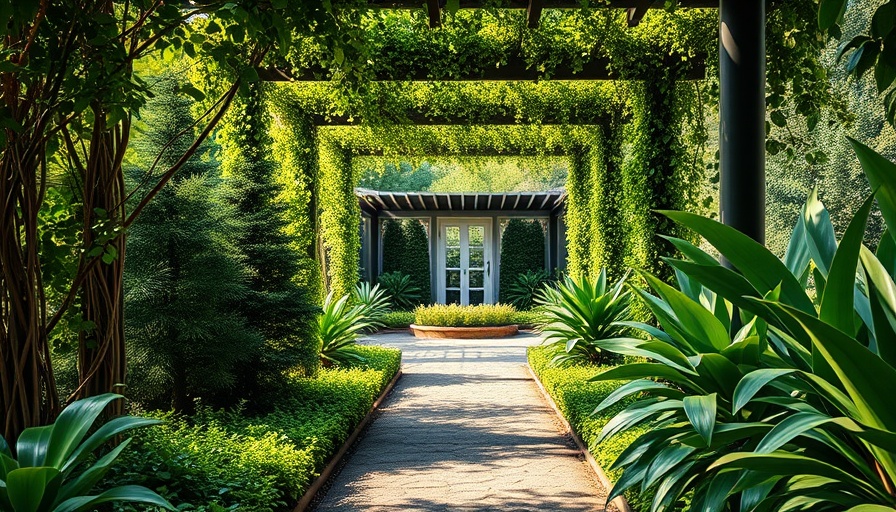
Transforming Small Gardens into Serene Spaces
If you have a garden that is larger than a courtyard but smaller than an acre, the challenge of maximizing its potential requires thoughtful design. Designers Charlotte Rowe and Tomoko Kawauchi have mastered the art of transforming London town gardens into scenarios exuding tranquility and spaciousness. Focusing on specific garden design details, they advocate for a retreat-like atmosphere that can even make smaller plots feel vast and inviting.
Consider Your Space's Functionality
One of the first steps in garden design is to establish how the space will be used. Do you envision areas for dining, play, or moments of quiet solitude? Begin by listing your family's desires and necessary functionalities, helping to steer your design journey. Charlotte and Tomoko emphasize the importance of first conceptualizing practical areas for activities such as relaxing or hosting gatherings before moving on to the intricate details of paths and layouts.
The flexibility of design is key; for instance, a trampoline can later give way to a cozy fire pit. Such adaptability reinforces how essential it is to ensure utility is at the forefront of every design decision.
Create an Engaging Journey
A well-crafted garden should invite exploration. Paths should lead you through the space, revealing new seating areas or surprise destinations. Tomoko suggests considering various approaches, highlighting how different routes can enhance one's sense of adventure while navigating the garden. A garden that one cannot view in its entirety at once will naturally feel larger; incorporating twists and turns can play a crucial role in this perception.
Charlotte notes that urban gardens are typically linear due to space constraints, where straight paths often provide both practicality and visual allure. However, the inclusion of features such as wider steps, adorned with plantings, not only foster safety but also introduce layers of complexity and interest.
Leverage Garden Levels
Another principle that transforms urban landscapes is the strategic use of levels. Instead of flattening the terrain, which can lead to monetary and aesthetic loss, it is advisable to embrace the natural topography of your garden. Altering existing elevations could result in not only increased costs but also diminished light and character, which influences the overall atmosphere of your garden.
Utilizing shallow and wide outdoor steps over steep options creates a welcoming environment while also maintaining a sense of flow. Emphasizing lower, wider steps represents a safety consideration, but also contributes to the comfort and accessibility of the area.
Incorporate Diverse Planting Choices
Beyond hard landscaping elements, the planting choices play a pivotal role in the garden's character. A well-placed selection of shrubs and trees can add verticality and interest while contributing to an airy and open feel. For town gardens, selecting the right plants can soften harsh lines, creating a sense of intimacy that is harmonious yet lively.
Consider using a mix of perennials and evergreens that retain some structure throughout the year, enhancing visual interest, regardless of the season. The overall effect is a garden that feels expansive and lively, making it an inviting space for both homeowners and guests.
Creating a Retreat at Home
The pursuit of a calm, serene garden reflects a broader desire for peace in our often hectic lives. Gardens serve not only as spaces of beauty but also as essential sanctuaries for relaxation and reflection. By implementing these design concepts, homeowners can cultivate an outdoor haven that feels more substantial and rejuvenating.
Ultimately, the careful application of spatial dynamics—functionality, journey, levels, and thoughtful plant selection—gives way to improved design outcomes. Embracing these tenets ensures that every garden, whether humble or grand, transforms into a personal getaway from the urban jungle.
For further insights and actionable steps in garden design, consider reaching out to professionals or engaging with community resources. Knowledge is power when it comes to creating your perfect outdoor retreat.
 Add Row
Add Row  Add
Add 




Write A Comment